I ranked the MCU films, so I thought I’d dig a bit deeper. The quality of the villain can have as much to do with the quality of a film as the quality of the hero. Die Hard is often cited as an example of when a great villain makes a great movie. But for the MCU, that normal relationship doesn’t hold up. Except for a very few cases, the Marvel villains are weak. This isn’t a flaw; it is a feature. In a twisted way, this is what makes the MCU films work, because these are not action driven films, but character driven ones. The Iron Man films are not about how Iron Man solves a particular problem and defeats a villain; they are about Tony Stark. The Captain America films are about Steve Rogers. Strong villains can change that focus. A strong villain is all about the plot he creates for the hero to dwell in. And plot isn’t that important in the MCU. In only a couple cases dos the villain really matter. These movies shine because we know these characters, and we love them. Still, ranking villains is fun and I do not want to rank the heroes. So here’s my ranking of the Marvel Cinematic Universe Villains, from weakest to strongest.
I’m only dealing with main villains, so no henchmen (except for one special case) or stooges. I am sticking with the films, where direct comparison makes more sense. That makes it 36 (the Iron Man films have two each, as does The Incredible Hulk and Cap 2, while there are two cases where a single villain is the big bad in two films). Also, SPOILERS!, as sometimes it’s meant to be a surprise who the main villain is.
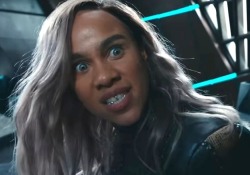 #36 – Dar-Benn (Zawe Ashton)
#36 – Dar-Benn (Zawe Ashton)
Film: The Marvels
Fiendish Plot: Use a magic bracelet to steal resources from other planets.
Motivation: Restore the Kree and revenge
She’s pretty much Ronan or Malekith, 2.0, and as the originals weren’t very good, a retread is worse. She’s just there. She hits things with her hammer (didn’t Ronan have one of those) and not much else. And as several other of the poorer villains, her power levels are impossible to figure from the movie. Ashton isn’t just there in her acting, but is way over the top (again, not unlike Ronan), but not in a fun hammy way, but more as if she had no idea what she was supposed to do so just yelled.
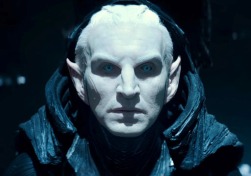 #35 – Malekith (Christopher Eccleston)
#35 – Malekith (Christopher Eccleston)
Film: Thor: The Dark World
Fiendish Plot: To bring darkness to the universe…maybe metaphorically, maybe literally. Maybe just part of the universe. Honestly, not sure he’s thought it through.
Motivation: Feeling mopey
So, they spent money on an actor instead of buying a manikin and there’s no way to tell. Eccleston is invisible under his makeup. Since he was given a script that gave him nothing to do and no personality to play, he apparently just gave up. The greatest sin in art is to be boring, and Malekith is boring.
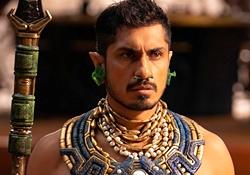 #34 – Namor (Tenoch Huerta Mejía)
#34 – Namor (Tenoch Huerta Mejía)
Film: Black Panther: Wakanda Forever
Fiendish Plot: Do as many stupid things as possible, I guess…
Motivation: Protect his kingdom
Namor was a disappointment in a film that was destined to be disappointing. He’s supposed to be noble, an anti-hero who just happens to be on the opposite side of our heroes. Instead he’s a wishy-washy idiot. He never makes a single move that makes sense. Why attack Wakanda? It isn’t his enemy, and he knows it. Why force others to do what he could do himself? He’s written too poorly to be higher on this list.
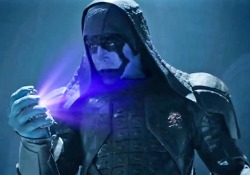 #33 – Ronan (Lee Pace)
#33 – Ronan (Lee Pace)
Film: Guardians of the Galaxy
Fiendish Plot: To kill…people
Motivation: Angry zealot.
So Malekith…oops, sorry, I meant Ronan, is unhappy about some stuff that’s given no importance in the film, and he wants to hurt a lot of people who don’t mean a whole lot to the audience. His method of expressing this is to stand and yell. If it wasn’t for the dance-off, he’d only have one expression. A shame as Lee Pace has a great deal of character, none of which shows here.
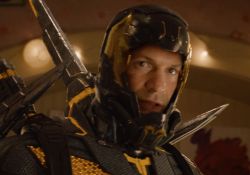 #32 – Darren Cross / Yellowjacket (Corey Stoll)
#32 – Darren Cross / Yellowjacket (Corey Stoll)
Film: Ant-Man
Fiendish Plot: To make money by selling shrinking technology to bad guys.
Motivation: A bit of an ego issue, but really he just wants money.
In case all the many, many Iron Man “industrialist” villains aren’t enough for you, here’s another one. Like those higher on this list, he’s businessman first, but scientist next. He just isn’t a good enough scientist to do what he wants to do. If he’d spent a bit more time in the lab, maybe he wouldn’t have all these problems. Though his biggest problem is he doesn’t seem to understand what’s valuable. He desperately wants shrink-suit technology, for no reason other then selling it, then he ignores that he has ultimate assassin gun technology already. He could just sell that and stay clear of any Ant-Men. As Marvel villains go, he isn’t bad, but he’s drab, and too much like so many others.
 #31 – Kang the Conqueror (Jonathan Majors)
#31 – Kang the Conqueror (Jonathan Majors)
Film: Ant-Man & the Wasp: Quantumania
Fiendish Plot: Use Hope to repair his power core.
Motivation: Escape so he can conquer and destroy.
Don’t know if this went wrong in the writing stage or the directing stage, but just as the movie as a whole lacked character and depth, so did Kang. He seems like the stand-in for the real villain that they’d write later. It made it worse that his power levels fluctuated so wildly. I had no idea what he could do and what actually was a threat to him.
 #30 – General Ross (William Hurt)
#30 – General Ross (William Hurt)
Film: The Incredible Hulk
Fiendish Plot: To kill the Hulk and make more super soldiers.
Motivation: The Hulk is a threat. Or Banner is a leftist. Or Banner dated his daughter. Or Super soldiers will save the US.
I always like William Hurt and he put more life into Ross than anyone else could have, but there’s so little to work with. Ross is an old cliché—the grumpy, right-wing general who yells a lot. He’s not interesting in the comics and he’s not interesting here.
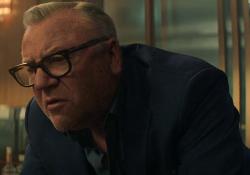 #29 – Dreykov (Ray Winstone)
#29 – Dreykov (Ray Winstone)
Film: Black Widow
Fiendish Plot: To continue using mind controlled female assassins for world domination.
Motivation: Well, world domination
As the master mind, the general, the puppeteer, controlling an army that does his bidding, he’s…fine. He’s arrogant and cruel, but it isn’t enough to give him much of a personality. There’s nothing wrong with him, but there’s also nothing to make him interesting. He’s got no charisma—the very impersonal threat who is supposed to be personal. He’s generic bad guy #17. He doesn’t do the fighting, but then he doesn’t do a lot of thinking either. He mainly just sits by his desk.
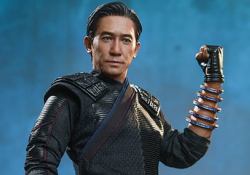 #28 – Xu Wenwu (Tony Leung)
#28 – Xu Wenwu (Tony Leung)
Film: Shang-Chi and the Legend of the Ten Rings
Fiendish Plot: Destroy a magical city unless he gets his dead wife back
Motivation: Love and grief
Wenwu had everything to make him a great villain. There’s lots of back-story, first with his rise as a warlord, then his redemption due to love, then his grief causing him to abuse his children, and finally his delusion of resurrecting his wife. But it doesn’t work in the film because Legend of the Ten Rings wants us to like him, to deeply care about him having a healthy relationship with his children and doing the right thing in general. And I do not. Yes, I understand how and why he’s evil, but that doesn’t mean I want to cuddle. He’s the bad guy. Let him be that. It’s OK for his abused children to hate him and another redemption is one too many.
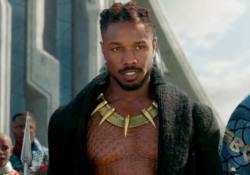 #27 – Erik Killmonger (Michael B. Jordan)
#27 – Erik Killmonger (Michael B. Jordan)
Film: Black Panther
Fiendish Plot: To kill T’Challa and become king
Motivation: Revenge for how his father was treated mixed with random evil
The problem is that Killmonger isn’t really a character. He’s whatever is needed to set the tone. So sometimes he’s rational, sometimes he’s crazy, sometimes he’s trying for justice, sometimes he’s just an evil SOB. His background makes him a justified advisory for T’Challa, but that makes for a complicated film with lots of shades of gray, and MARVEL was already taking all the chances they wanted to with Black Panther, so they simplified him so the kiddies wouldn’t have to wonder if maybe he ought to win. He could have been top notch, but he’s a disappointment.
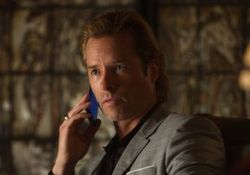 #26 – Aldrich Killian (Guy Pearce)
#26 – Aldrich Killian (Guy Pearce)
Film: Iron Man 3
Fiendish Plot: To gain money and power by killing the president in the most awkward way imaginable, and soothing his ego.
Motivation: Tony was mean to him at a party (hey, it’s the Sad Puppies)
Iron Man gave us an industrialist out for money and power. Iron Man 2 gave us an industrialist out for money and power. So Iron Man 3 plays it wild, giving us an industrialist out for money and power. How original. Killian lacks the backstabbing paternalistic substance of Obadiah Stane. He lacks the comedy and cruelty formed from stupidity of Hammer. Instead he has… well… He dresses well. Killian is smarmy, but not in a good way. He’s mainly pathetic, but he does breath fire, which really is not a plus.
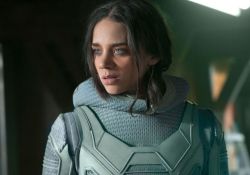 #25 – Ghost (Hannah John-Kamen)
#25 – Ghost (Hannah John-Kamen)
Film: Ant-Man and the Wasp
Fiendish Plot: Suck away the energy from Janet Van Dyne
Motivation: One part revenge to two parts making the pain go away
You can’t have a top villain when she’s in a movie that didn’t need a villain. She’s simply unnecessary. She could have been cut in favor of two or three extra scenes with the three leads. I suppose it would have been OK if she’d been a touch more interesting, but the script never seems to decide what to make of her. Is she sympathetic? Is she evil? For a moment I thought they had something when she acts gothic and weird after she’s captured Ant-Man, The Wasp, and Hank, but that was apparently her just goofing off (which doesn’t fit anything else we ever see of her).
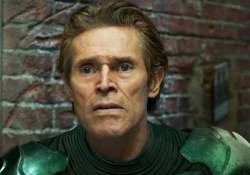 #24 – Green Goblin (Willem DaFoe)
#24 – Green Goblin (Willem DaFoe)
Film: Spider-Man: No Way Home
Fiendish Plot: Get Spider-Man
Motivation: He’s crazy
I almost left him off as the real villain of the film is Peter Parker. All the pain, suffering, and death are due to Peter being naïve, childish, and arrogant. OK, Aunt May is an enabler, but it’s all on Peter. But then I suppose the same could have been said for Tony Stark on several occasions, so Green Goblin gets the job as big bad (with Electro, The Lizard, and Sandman being sidekicks, and Otto Octavius in a different category). The Goblin does as well as possible in the role due to Willem DaFoe’s “I can out-Joker the Joker” performance. As it’s mainly a repeat performance from a previous decade, involves limited screen time, and he’s not really the big bad, he can only rank so high.
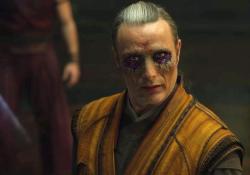 #23 – Kaecilius (Mads Mikkelsen)
#23 – Kaecilius (Mads Mikkelsen)
Film: Doctor Strange
Fiendish Plot: Allow the demon Dormammu access to Earth and by so doing that, gain immortality
Motivation: Hatred of death due to losing both his wife and child.
Kaecilius is a solid villain, if not a particularly interesting one. Like many MCU bad guys, he doesn’t get enough screen time to become layered. He has a few nice speeches, he looks good fighting, and he displays significant malice. He feels like a threat. He serves his purpose, but he could have been replaced by another standard villain without changing anything. I’m not counting Dormammu on this list (in one way of looking at it, he’s the actual villain and Kaecilius is a henchman) as he is barely in the picture and really just takes the place of a weapon–he’s the equivalent of a gigantic nuclear bomb.
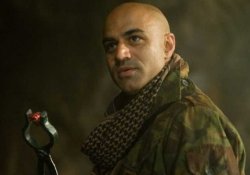 #22 – Raza (Faran Tahir)
#22 – Raza (Faran Tahir)
Film: Iron Man
Fiendish Plot: Acquire big weapons
Motivation: Terroristy motivation.
Raza is a one trick pony, a generic Arab terrorist, but he oozes menace and supplies what the film needs. As the primary villain, he’d have been wanting, but as a secondary who exists to prod Tony to become Iron Man, and as a red herring, he is adequate.
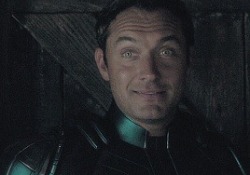 #21 – The Supreme Intelligence/Yon-Rogg (Annette Bening/Jude Law)
#21 – The Supreme Intelligence/Yon-Rogg (Annette Bening/Jude Law)
Film: Captain Marvel
Fiendish Plot: To gain the powers Carol absorbed and/or use her in their destruction of the skrull
Motivation: Devotion to the Kree genocidal empire
I’ve got to include both as neither quite qualify on their own. And one half of this dyad is much better than the other. Bening’s Supreme Intelligence should be a frightening representation of fascism, but she’s just sorta snarky.
Luckily, Yon-Rogg is much better. Giving off Nietzsche’s Übermensch vibes, he works so well due to his appearance of kindness and caring. And it isn’t clear that it’s all an act. He goes out of his way to be a mentor to Vers. Of course he’s gaslighting her the whole time, but he no doubt believes it’s for the good. He’s a recruiter for fascism. It all looks nice and pure and good, until it isn’t. So much of this comes from Law, who gives such a likeable performance, until you want to strangle him. He seems helpful, until challenged, and then he’s a patronizing ass. I think there might be a message there.
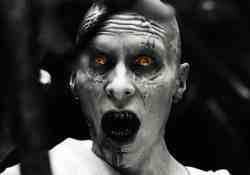 #20 – Gorr the God Butcher (Christian Bale)
#20 – Gorr the God Butcher (Christian Bale)
Film: Thor: Love and Thunder
Fiendish Plan: To kill all gods
Motivation: Justifiable hatred of Gods
I give big points to Bale’s performance. He sells Gorr’s anger, loss, and bitterness. I buy it all. In a vacuum, Gorr is one of the better MCU villains, but he seems to be in the wrong movie. Gorr is one creepy dude, but was a creepy dude what was needed? Hela had threaded the needle on frightening and fun, which is what Love and Thunder should have had. Gorr is too intense for the mostly comedic movie he’s in.
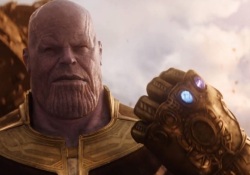 #19 – Thanos (Josh Brolin)
#19 – Thanos (Josh Brolin)
Film: Avengers: Infinity War, End Game
Fiendish Plot: Collect the Infinity stones so as to kill half the life in the universe
Motivation: To save the Universe from over population.
Thanos is the main character of Infinity War as we follow his story, giving him the opportunity to be one of the very best. Brolin does a nice job and there’s plenty of emotional beats but in the end he’s just OK. What drags him down is that he is both nonsensical and inconsistent. Marvel decided his motivation from the comic books (love of the incarnation of Death) was too…comic-booky, so they removed that to be replaced by wishy-washy fears of overpopulation. Love I’ll buy. Overpopulation is just stupid as he could solve the problem in so many other ways (more resources) while killing people doesn’t actually solve anything for more than a few years–and if he’d been developed well, I shouldn’t have been thinking that while watching. At least as problematic is his powers. Sometimes he seems just slightly stronger than an Avenger and at others he’s unstoppable. For all his back-story, we don’t get anything clear on what he can do. And End Game makes his powers even more inconsistent.
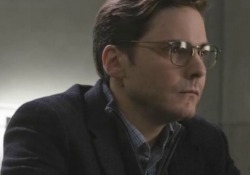 #18 – Zemo (Daniel Brühl)
#18 – Zemo (Daniel Brühl)
Film: Captain America: Civil War
Fiendish Plot: To set The Avengers against each other
Motivation: To avenge himself on The Avengers.
I liked everything about Zemo. There’s no downside to this sympathetic, violent killer, except, perhaps, that he doesn’t have any wild, standout quirks. But this is as high as I can put him on the list because he just doesn’t have enough screen time. He’s a good villian, but not an important one. Zemo instigates the problems, but the direct conflict doesn’t involve him, or even his minions. Note: Zemo has no minions.
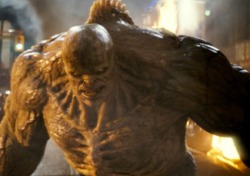 #17 – Emil Blonsky / The Abomination (Tim Roth)
#17 – Emil Blonsky / The Abomination (Tim Roth)
Film: The Incredible Hulk
Fiendish Plot: To become a fearsome killing machine
Motivation: He’s old. And he likes to kill.
Tim Roth has personality to burn, which comes in handy since Emil Blonsky is not exactly a deep character. He apparently is very violent and would like to be more violent. That’s all he is. But as the monster he becomes, that’s all he needs to be.
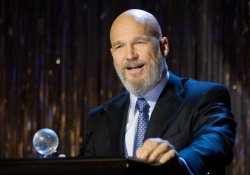 #16 – Obadiah Stane (Jeff Bridges)
#16 – Obadiah Stane (Jeff Bridges)
Film: Iron Man
Fiendish Plot: Kill Tony and take his inventions to build better weapons
Motivation: Money and power
The personification of the coldness of the corporate world, Stane has just the right amount of fatherly charm to make him truly vile. He’s not a genius, and he knows it, but he’s smarter than most and he’s ruthless. I’ve seen this type of character too many times to be really excited by him, but he’s a good rendition of the type, particularly due to Jeff Bridges spot on performance.
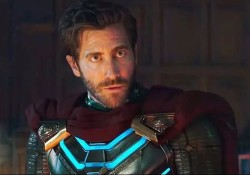 #15 – Mysterio (Jake Gyllenhaal)
#15 – Mysterio (Jake Gyllenhaal)
Film: Spider-Man: Far From Home
Fiendish Plot: Use illusions to get Peter to give him power over Stark Industries
Motivation: Adulation
Just how many super villains is the Stark family responsible for creating? Mysterio would be higher on this list if it wasn’t clear he was the villain before the film started. The story REALLY wants us to think he’s a good guy which is a problem when we know he isn’t. Still, Quentin Beck is believable, and played so well by Gyllenhaal, with his easy switch from caring father-figure to angry, sleezy bro.
 #14 – Ego (Kurt Russell)
#14 – Ego (Kurt Russell)
Film: Guardians of the Galaxy Vol. 2
Fiendish Plot: To make all life himself
Motivation: It’s in his name: ego. Lots and lots of ego.
Ego is a really nasty guy. What works so well about him is he doesn’t act that way. He’s a jovial villain. He smiles and pats shoulders and really does want to spend a little time with his son. Kurt Russell can be quite charismatic and he turns that up to 11 for Ego. Still, Ego is not a top notch villain; he isn’t important enough. The film is about the development of the Guardians, and there are a lot of them. Ego doesn’t get enough time, thought, or focus to really thrill. He’s as good as any villain could be who’s forced to play 10th fiddle.
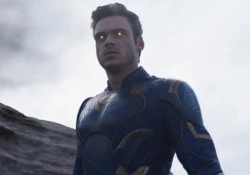 #13 – Ikaris (Richard Madden)
#13 – Ikaris (Richard Madden)
Film: Eternals
Fiendish Plot: Do anything necessary to make sure the Celestial’s plan comes to completion.
Motivation: Fanaticism mixed with Despair
One of the best twist villains in any film, Ikaris is so likeable, heroic, and bland right up until it’s clear he isn’t any of those things. Unlike Obadiah Stane, Alexander Pierce, or Ego, I felt his betrayal.
I’ve seen some press counting Kro the Deviant or Arishem the Celestrial as the big bad, which clearly isn’t how the film is written.
 #12 – The Winter Soldier / Bucky Barnes (Sebastian Stan)
#12 – The Winter Soldier / Bucky Barnes (Sebastian Stan)
Film: Captain America: The Winter Soldier
Fiendish Plot: To kill whoever he’s told to kill
Motivation: none
The Winter Soldier makes a great adversary for Captain America in the action scenes, and he’s got more of a back story than most villains from being Bucky in Captain America 1, but outside of the fights, he’s a robot. He doesn’t have his own motivation. He doesn’t want things or do things. He’s a terminator. He becomes more of a character as a hero, but for what he was in Captain America 2, he ends up at #12.
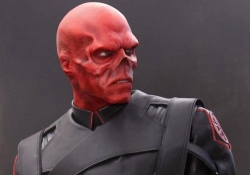 #11 – Red Skull (Hugo Weaving)
#11 – Red Skull (Hugo Weaving)
Film: Captain America: The First Avenger
Fiendish Plot: To destroy major cities, allowing Hydra to take over the world.
Motivation: A belief in the inferiority of everyone else
You can’t dislike Hugo Weaving playing evil. Plus an Anti-Captain America is a good adversary for Cap. He’s also very familiar. Take away the red head and he is a typical Nazi commander from about a hundred movies made in the ’40s and ’50s. That’s not a bad thing as there’s a reason why that kind of villain was common, but Henchman Dr. Arnim Zola is more interesting and a lot more fun.
 #10 – Alexander Pierce (Robert Redford)
#10 – Alexander Pierce (Robert Redford)
Film: Captain America: The Winter Soldier
Fiendish Plot: Use terror to convince people to give up their freedoms, and then shoot any potential opposition.
Motivation: To make a better world
Pierce is the political villain in a political thriller, and as Redford had played the hero in similar films, it was brilliant casting. What makes Pierce stand above so many others is that he’s not a typical comic book “bad guy.” He doesn’t want to hurt anyone, or damage the world, nor is he out for his own gain. He genuinely wants to help and is willing to do as much as any hero. It’s just he has a different view of how to help the world than The Avengers. Freedom leads to pain. People are not capable of leading themselves. And he wants what is best for them. He even got part of his philosophy from Nick Fury. True believers are always the most dangerous.
 #9 – Justin Hammer (Sam Rockwell)
#9 – Justin Hammer (Sam Rockwell)
Film: Iron Man 2
Fiendish Plot: Get new weapons from Vanko to sell to the military
Motivation: Money is good
Justin Hammer is what Stark might have been, if he was not so brilliant and didn’t change his ways. Hammer is smarmy (but unlike Killian, in a good way), greedy, and powerful in the corporate world, but not powerful enough. He’s the only purely comedic villain on this list, and he runs with it unapologetically. There are some great actors in the MCU that never connected with their characters (see the bottom of this list), but Rockwell inhabits Hammer with glee, and glee really is the word to use when discussing Hammer.
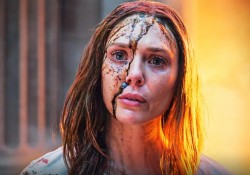 #8 – The Scarlet Witch (Elizabeth Olsen)
#8 – The Scarlet Witch (Elizabeth Olsen)
Film: Doctor Strange In the Multiverse of Madness
Fiendish Plot: Steal the power from a young superhero
Motivation: To be with her children
She’s appeared as a villainous hench in Age of Ultron, then a hero Civil War, Infinity War, and End Game and back to a villain in the twisty WandaVision. She’s a solid hero, so not surprisingly, a solid villain. Nothing is scarier than a mother, if you are standing between her and her children. I understand her, and completely believe she’ll do horrible things—not that she wants to, but she will.
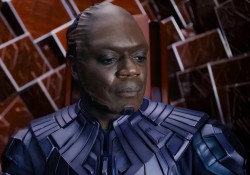 #7 – The High Evolutionary (Chukwudi Iwuji)
#7 – The High Evolutionary (Chukwudi Iwuji)
Film: Guardians of the Galaxy, Vol 3
Fiendish Plot: Kidnap Rocket so he can use him to create a perfect race.
Motivation: God Complex and hating everything.
You want evil? Here’s evil. The High Evolutionary might be the most loathsome villain of the MCU: A vivisectionist with no empathy. What makes him all the worse is he’s less competent than most MCU villains in that he has never succeeded, and never will. He’s delusional. Whatever he creates will never be good enough and he’ll kill it off like has done so many times before. He’s insane in a way we haven’t seen before. When your villain cuts up small animals, it’s good to not attempt some complexity. He’s just evil, making it all the better when he loses it all.
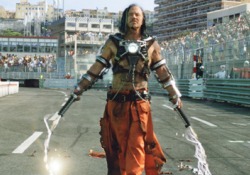 #6 – Ivan Vanko / Whiplash (Mickey Rourke)
#6 – Ivan Vanko / Whiplash (Mickey Rourke)
Film: Iron Man 2
Fiendish Plot: Use arc technology to screw with Tony Stark in any way possible
Motivation: Revenge and hatred, not entirely without basis.
With drab and understated villains filling much of the MCU, it is nice to get one that goes full bizarro. Vanko has a truly unique look (tats, shiny teeth, questionable hygiene, and an epic hair style), a flashy if impractical weapon, and a love for his “bouuurd.” He also has what many of his colleagues lack: complexity and a touch of reality. He’s angry and hurt and mourning. Angry people do not yell all the time (Ronan, that’s for you). Mourning people do not stand still and mope (that’s you Malekith). They do sometimes act a bit odd, lashing out one moment, laughing the next, switching from in control to lost. They do what Vanko does. And since Vanko really only wants to hurt Tony Stark, the questionable nature of his plans isn’t a problem. He’s not trying to win. He just wants Stark to lose. I know this is where I’ll get the most disagreements. But read what I’ve written, then go watch Iron Man 2 again, and see if you warm to him.
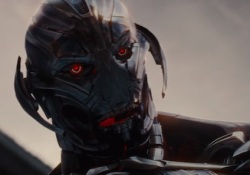 #5 – Ultron (James Spader)
#5 – Ultron (James Spader)
Film: Avengers: Age of Ultron
Fiendish Plot: Wipe out humanity so that it can evolve…kinda.
Motivation: His programming to save the world, the blight of humanity, and daddy issues.
Ultron is a drab, predictable android in the comics and animated films/shows. He could have been that in the MCU film, but he isn’t. Whedon’s script, and the always twisted performance of Spader (voice) created a deranged robot with major issues, and those issues make him enjoyable. Ultron never feels like the world-threatening menace he no doubt was meant to be, but his psychological failings did make me think he was a specific threat, someone who could cause pain, misery, and death to a few of the characters I did care about, and that makes him a fine villain.
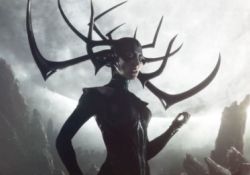 #4 – Hela (Cate Blanchett)
#4 – Hela (Cate Blanchett)
Film: Thor: Ragnarok
Fiendish Plot: Conquer everything and kill anyone in her way. Less of a plot than a lifestyle
Motivation: Primarily she likes killing and conquering, but a bit of nostalgia and wanting to be noticed.
Sometimes you want a villain with nuance and layers and sometimes what you need is pure evil. Hela goes the pure evil route, with fabulous flamboyance. Her costume does half the heavy lifting, making her the best looking MCU villain by a significant margin. She’s a heavy metal album cover come to life. Like the film, Hela manages the strange feat of being epic while also being funny. She’s repeatedly hilarious, right before she murders an army or after she stabs out someone’s eye. Now that’s a balancing act.
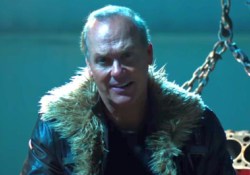 #3 – Adrian Toomes / Vulture (Michael Keaton)
#3 – Adrian Toomes / Vulture (Michael Keaton)
Film: Spider-Man: Homecoming
Fiendish Plot: Use recovered high tech items to steal and create more high tech items to sell to criminals
Motivation: Take care of family and those he is responsible for, plus a bit of anger at those screwing the little man.
What allows Michael Keaton to create one of the best villains in the MCU is the same thing he used in one of the best superhero portrayals (that being Batman): his ability to layer two opposing character traits on top of each other. Keaton can appear to be an everyman while also coming off a bit deranged. And that works perfectly for Vulture. He’s just a guy, trying to get by and give his family a good life. But he’s been pushed and now as he embraces his new way of providing for them, he becomes dangerous. There’s something likable about him at the exact same moment there is something very scary. Toomes is relatable–for an older member of the audience, his life and problems are more understandable and feel more important than Peter Parker’s. I wanted him to win even as I knew that wasn’t a good idea. Which puts him at #3.
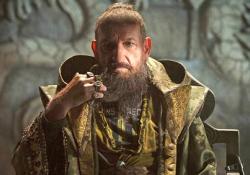 #2 – The Mandarin / Trevor Slattery (Ben Kingsley)
#2 – The Mandarin / Trevor Slattery (Ben Kingsley)
Film: Iron Man 3
Fiendish Plot: To destroy Western civilization via terror, or to get some drugs
Motivation: Righteous indignation, or addiction.
The Mandarin, as introduced in Iron Man 3, is powerful and full of menace. An excellent way to start, but as the character is just an amalgamation of terrorist clichés, he gets boring very quickly. But then we’re thrown a twist, a twist despised by some comics purists (nothing is more boring than a comics purist), that makes The Mandarin something very different, and pulls the film out of its two acts of whining. The big twist shouldn’t have surprised anyone. Marvel was not going to have so racially problematic of a villain. Something was going to change. The change was Trevor, and he earns his spot at #2. If The Mandarin’s ranking seems high compared to how I ranked his film, look where I placed the other villain of the piece.
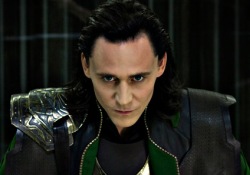 #1 – Loki (Tom Hiddleston)
#1 – Loki (Tom Hiddleston)
Films: Thor, The Avengers
Fiendish Plot: To become king of Asgard, and then take over Earth and rule it as a god
Motivation: Family politics, ego, need to do something.
Loki not only wins as best MCU villain, he is one of the greatest film villains of all time. In Thor, he was the semi-sympathetic, thoughtful, but damaged one in a room full of idiots. In The Avengers, he was the sympathetic, thoughtful but damaged, witty, doomed, needy, lonely, cruel, overwhelmed, powerful, brave, egotistical one in a room full of…well, mainly idiots, but a few geniuses. Hiddleston balances these conflicting characteristics and creates a personality that’s more fun than any of the heroes. Since his villain turns, he’s appeared in several more films playing part hero, part villain and he’s continued to be one of the best things about the MCU.
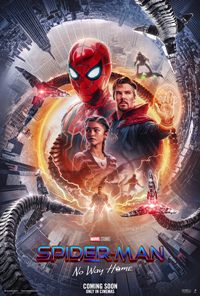
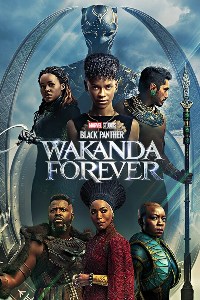
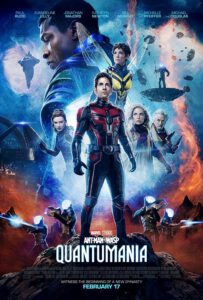
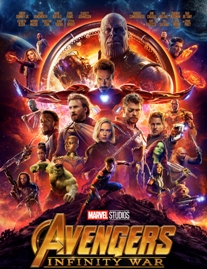
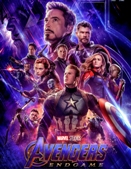
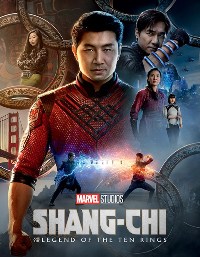
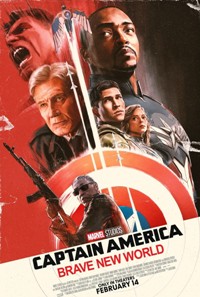 Sam Wilson/Captain America is pushed into a mystery when super soldier Isaiah Bradley attempts to assassinate President Ross while in a trance. The crime is connected to a secret prisoner, Ross’s pills, and The Serpent Society. All this is happening while Ross is trying to get a treaty in place to share the adamantium that has been found in the corpse of the celestial in the Indian Ocean.
Sam Wilson/Captain America is pushed into a mystery when super soldier Isaiah Bradley attempts to assassinate President Ross while in a trance. The crime is connected to a secret prisoner, Ross’s pills, and The Serpent Society. All this is happening while Ross is trying to get a treaty in place to share the adamantium that has been found in the corpse of the celestial in the Indian Ocean.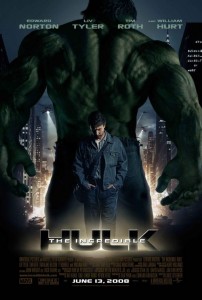
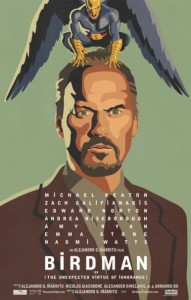
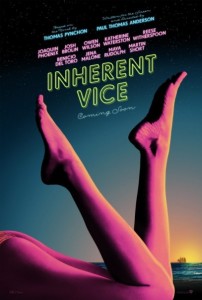
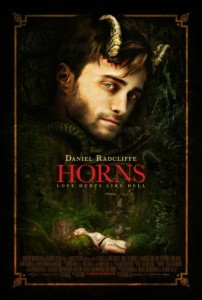
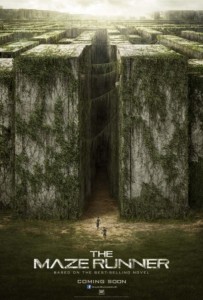
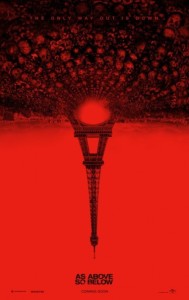

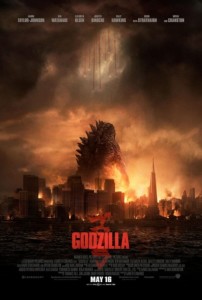
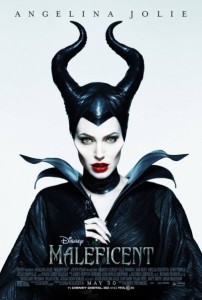
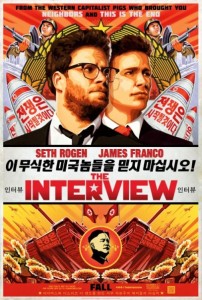
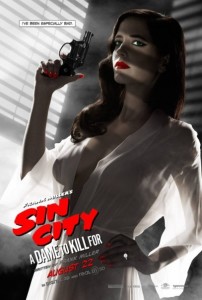
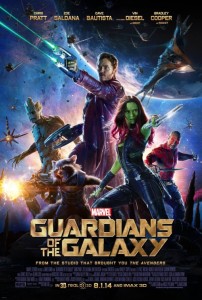
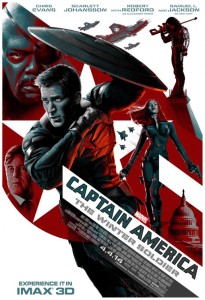
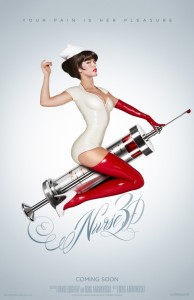
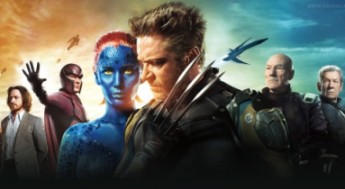 Once a metaphor for Blacks in America, and now often seen as a commentary of how the LGBT community is treated, the X-Men have always meant a bit more than other comic book characters.
Once a metaphor for Blacks in America, and now often seen as a commentary of how the LGBT community is treated, the X-Men have always meant a bit more than other comic book characters.











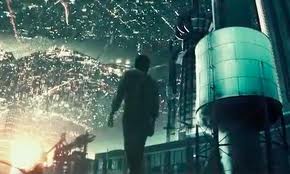 I’m starting with a cheat. I can’t say that Upside Down is the 5th best genre film of the year, even if I can type it. But nothing in the bundle of gore-feasts, animated horror comedies, and action dramedies that could take its place stand out. They just aren’t special. Upside Down may not truly be better than all the second tier offerings, but it is spectacular.
I’m starting with a cheat. I can’t say that Upside Down is the 5th best genre film of the year, even if I can type it. But nothing in the bundle of gore-feasts, animated horror comedies, and action dramedies that could take its place stand out. They just aren’t special. Upside Down may not truly be better than all the second tier offerings, but it is spectacular.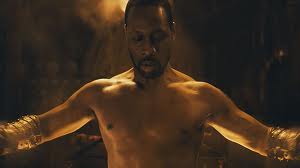 Robert Rodriguez and Quentin Tarantino solidified the Nouveau Grindhouse movement with Kill Bill, From Dusk Till Dawn, Machete, and of course Grindhouse, a group of playful, self-aware films that honor the ’70s “grindhouse” and drive-in era. The Man With the Iron Fists is the newest entry in the movement and the best not made by Rodriguez or Tarantino (though Tarantino does have a finger in as “presenter”). If you long for old school Hong Kong chopsocky, but with the addition of greater racial diversity and Hollywood A-listers, your dreams have come true. Rapper RZA takes the director’s chair, as well as the role of the titular character, giving the feature a 2012 vibe, with a nod and a wink. Hands get lopped off, bodies get ground up, blood sprays across rooms, and it is all good fun. Russell Crowe hasn’t displayed this much life in years, and Lucy Liu shines with all the strength and mesmerizing beauty that she lacks in her weekly TV show.
Robert Rodriguez and Quentin Tarantino solidified the Nouveau Grindhouse movement with Kill Bill, From Dusk Till Dawn, Machete, and of course Grindhouse, a group of playful, self-aware films that honor the ’70s “grindhouse” and drive-in era. The Man With the Iron Fists is the newest entry in the movement and the best not made by Rodriguez or Tarantino (though Tarantino does have a finger in as “presenter”). If you long for old school Hong Kong chopsocky, but with the addition of greater racial diversity and Hollywood A-listers, your dreams have come true. Rapper RZA takes the director’s chair, as well as the role of the titular character, giving the feature a 2012 vibe, with a nod and a wink. Hands get lopped off, bodies get ground up, blood sprays across rooms, and it is all good fun. Russell Crowe hasn’t displayed this much life in years, and Lucy Liu shines with all the strength and mesmerizing beauty that she lacks in her weekly TV show. Call it a flawed jem. Ridley Scott’s return to science fiction is the most beautiful film of the year, and the most confounding. It gives us the year’s best character (the android David), the coolest spaceship, the greatest mysteries, the tensest moment, and the only self applied human/squid abortion. The last might not be a plus for everyone, but it was for me.
Call it a flawed jem. Ridley Scott’s return to science fiction is the most beautiful film of the year, and the most confounding. It gives us the year’s best character (the android David), the coolest spaceship, the greatest mysteries, the tensest moment, and the only self applied human/squid abortion. The last might not be a plus for everyone, but it was for me. Joss Whedon and Drew Goddard manage to close out the horror genre in grand style. Really. It’s all done. There is nowhere to go after The Cabin in the Woods. Pack it up because any fright fests are just going to look silly now. I’ve tried it, following it with Sinister and The Apparition and I was left giggling. OK, there might be another explanation for that…
Joss Whedon and Drew Goddard manage to close out the horror genre in grand style. Really. It’s all done. There is nowhere to go after The Cabin in the Woods. Pack it up because any fright fests are just going to look silly now. I’ve tried it, following it with Sinister and The Apparition and I was left giggling. OK, there might be another explanation for that… I can’t recall having a better time at the movies. The Avengers is perfectly crafted entertainment and perhaps the most satisfying picture of the decade. Filled with charismatic actors playing appealing characters in a big colorful action-fueled epic, it has invoked cheers at every screening I’ve attended.
I can’t recall having a better time at the movies. The Avengers is perfectly crafted entertainment and perhaps the most satisfying picture of the decade. Filled with charismatic actors playing appealing characters in a big colorful action-fueled epic, it has invoked cheers at every screening I’ve attended. The story of a man-child, his nearly perfect hot girlfriend, and his crude living teddy bear supplies a reasonable number of laughs, and shines when compared to most of 2012’s lame crop of comedies. However, when it popped up on multiple critics’ top ten lists, the world went out of whack. Seth MacFarlane, the mind and voice behind TV’s Family Guy, brings his edgy, twisted, animated-comedy sensibilities to the big screen, and nothing more. Actually he brings a little less as Ted is about the level of his lesser, but still funny American Dad. Here was a chance for him to go wild, and he didn’t. Half the episodes in any season of Family Guy are smarter, more transgressive, and just funnier, and they play four or five times a night on cable. Ted is fine viewing, but nothing special.
The story of a man-child, his nearly perfect hot girlfriend, and his crude living teddy bear supplies a reasonable number of laughs, and shines when compared to most of 2012’s lame crop of comedies. However, when it popped up on multiple critics’ top ten lists, the world went out of whack. Seth MacFarlane, the mind and voice behind TV’s Family Guy, brings his edgy, twisted, animated-comedy sensibilities to the big screen, and nothing more. Actually he brings a little less as Ted is about the level of his lesser, but still funny American Dad. Here was a chance for him to go wild, and he didn’t. Half the episodes in any season of Family Guy are smarter, more transgressive, and just funnier, and they play four or five times a night on cable. Ted is fine viewing, but nothing special.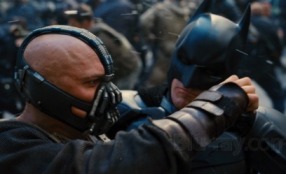 This tale of revenge and regeneration is the most interesting of Nolan’s trilogy, and one of the most interesting films of the year, but interesting does not mean good. On the plus side, the many (many, many) political references could keep you in water cooler conversations for months. Add in some middling action and a sexy Cat Woman and we’ve get a moderately entertaining superhero movie.
This tale of revenge and regeneration is the most interesting of Nolan’s trilogy, and one of the most interesting films of the year, but interesting does not mean good. On the plus side, the many (many, many) political references could keep you in water cooler conversations for months. Add in some middling action and a sexy Cat Woman and we’ve get a moderately entertaining superhero movie. Mainstream critics love to praise a foreign-language film they don’t understand and no one understands Holy Motors. The real fun is not watching the movie, but reading reviews where the author tries so very hard to say something sensible, and fails. “It’s about voyeurism” they cry, and no doubt they are correct, but what about voyeurism they cannot say. “It implies that life is a show,” and again they are right, though Shakespeare said a great deal more in a single line.
Mainstream critics love to praise a foreign-language film they don’t understand and no one understands Holy Motors. The real fun is not watching the movie, but reading reviews where the author tries so very hard to say something sensible, and fails. “It’s about voyeurism” they cry, and no doubt they are correct, but what about voyeurism they cannot say. “It implies that life is a show,” and again they are right, though Shakespeare said a great deal more in a single line. Critics affection for obtuse foreign fare is nothing next to their love of little indie fantasy films where all of the fantastic elements can be written off as a dream. It saves them from admitting to liking fantastic fiction while allowing them to give a nod to the genre. Toss in a condescending look at the impoverished and a spunky child and it is orgasm time.
Critics affection for obtuse foreign fare is nothing next to their love of little indie fantasy films where all of the fantastic elements can be written off as a dream. It saves them from admitting to liking fantastic fiction while allowing them to give a nod to the genre. Toss in a condescending look at the impoverished and a spunky child and it is orgasm time.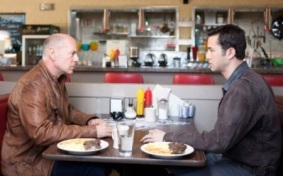 Beware science fiction films labelled as smart, as they rarely are, and never have anything else to offer. Looper is this year’s go to film for critics who don’t read. The basic story is incredibly straightforward. Two gunmen must face each other, with one trying to protect a child so that the kid won’t grow up with a bad childhood the way he had. The “complexity” comes from one gunman being the future version of the other who’s traveled back in time. Of course this brings up the grandfather paradox, which was old for any reader of SF by 1930. So how does this smart 2012 movie deal with this problem, a problem that is extremely important to the structure of the film, and to the characters’ choices? It doesn’t. Instead Bruce Willis’s old gunman says he’s not going to explain any of that time travel shit, and that’s it. After that, the film does whatever it wants and ignores rules. That can be OK in an action flick, but most of the action here involves looking at farm fields. If you like your sci-fii to be adventure low but farm house high, you are in luck. Looper is slow, unengaging, and as dumb as one of the posts that farmhouse no doubt uses.
Beware science fiction films labelled as smart, as they rarely are, and never have anything else to offer. Looper is this year’s go to film for critics who don’t read. The basic story is incredibly straightforward. Two gunmen must face each other, with one trying to protect a child so that the kid won’t grow up with a bad childhood the way he had. The “complexity” comes from one gunman being the future version of the other who’s traveled back in time. Of course this brings up the grandfather paradox, which was old for any reader of SF by 1930. So how does this smart 2012 movie deal with this problem, a problem that is extremely important to the structure of the film, and to the characters’ choices? It doesn’t. Instead Bruce Willis’s old gunman says he’s not going to explain any of that time travel shit, and that’s it. After that, the film does whatever it wants and ignores rules. That can be OK in an action flick, but most of the action here involves looking at farm fields. If you like your sci-fii to be adventure low but farm house high, you are in luck. Looper is slow, unengaging, and as dumb as one of the posts that farmhouse no doubt uses.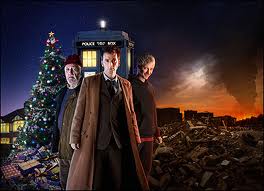 #9
#9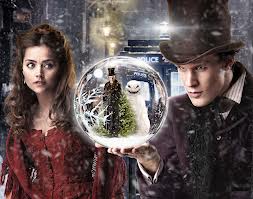 #8
#8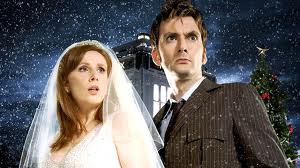 #7
#7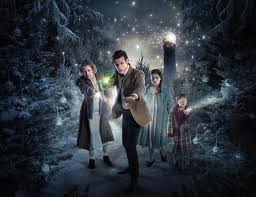 #6
#6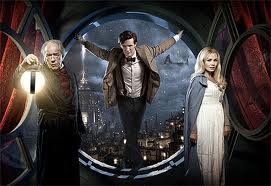 #5
#5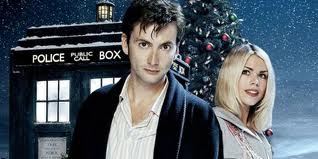 #4
#4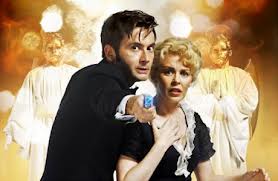 #3
#3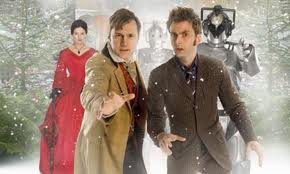 #2
#2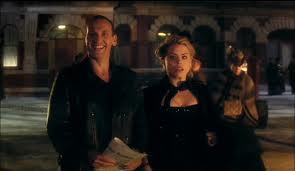 #1
#1